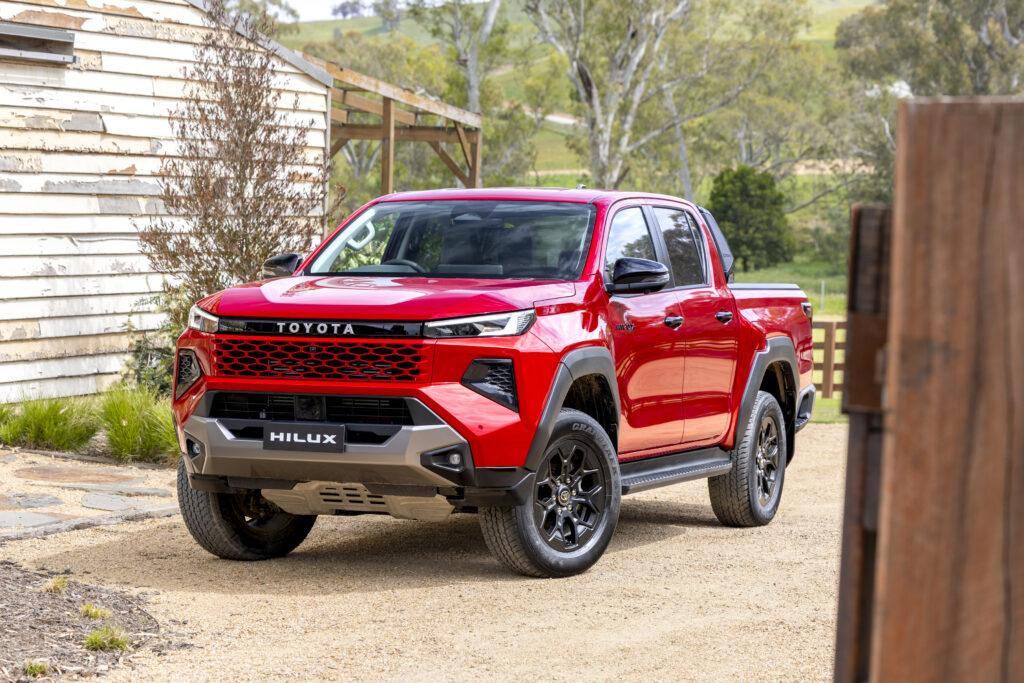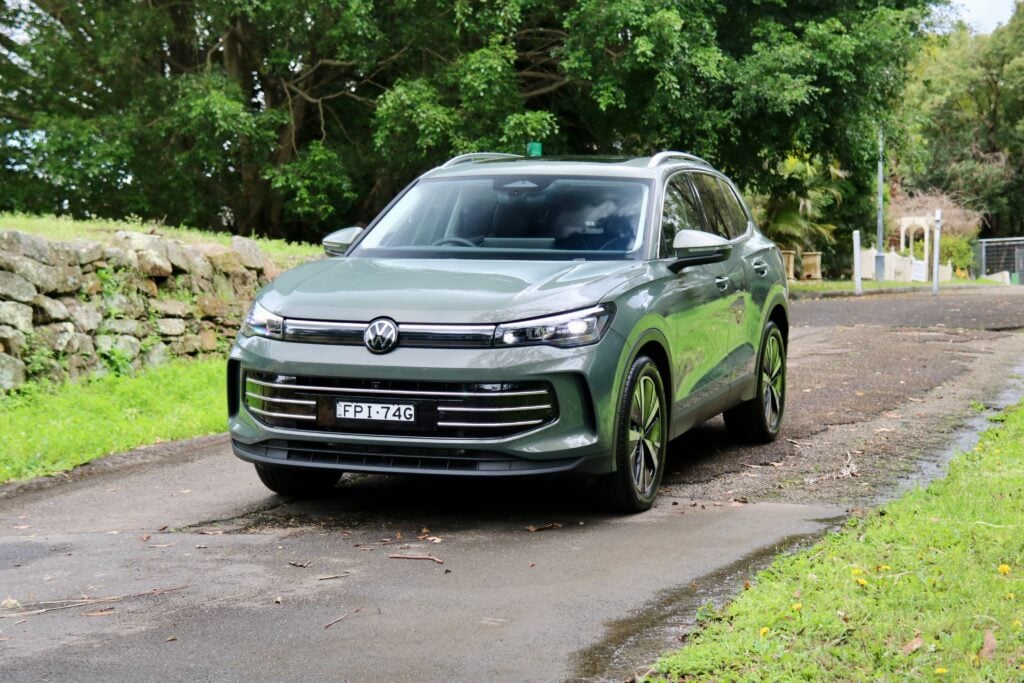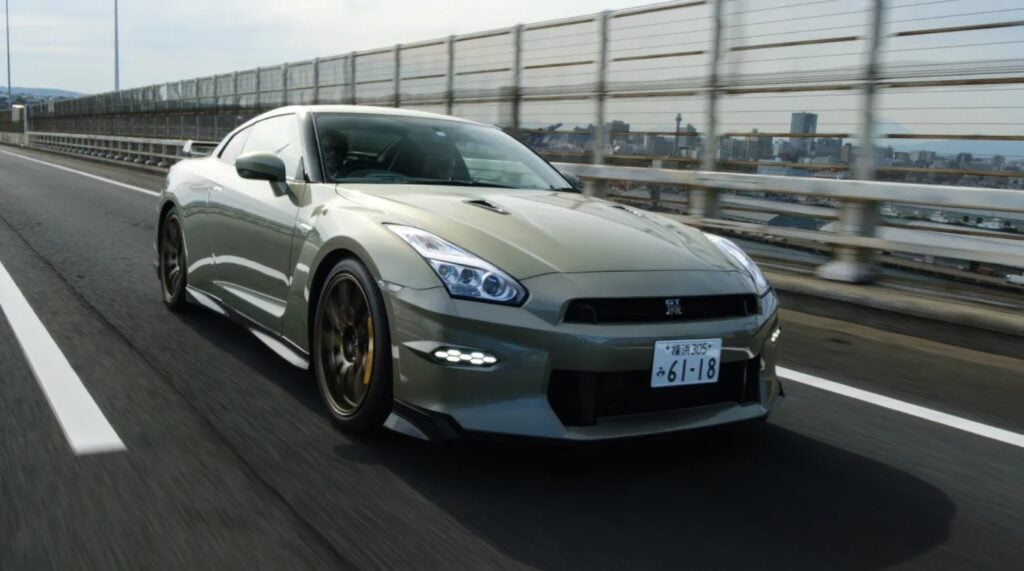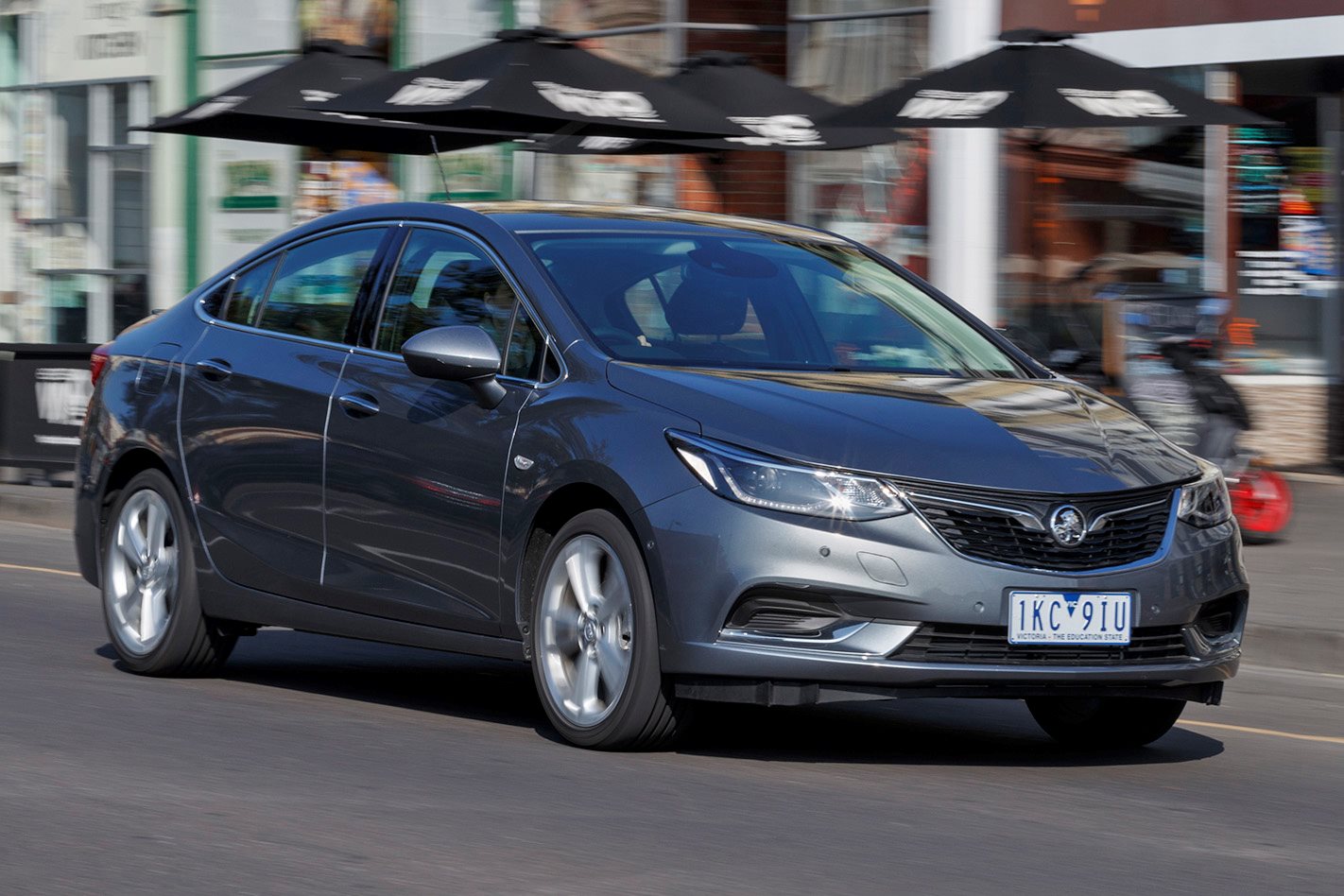
The Holden Cruze sedan is well and truly in the ground, and the Astra sedan is now in showrooms to replace it. However, rather than being a booted version of the Euro-built hatch, the new Holden Astra sedan actually differs markedly. In fact, the only common feature between hatch and sedan is the engine that powers them.
Truth be told, the Astra sedan isn’t really an Astra at all – rather, it’s a rebadged new-generation Chevrolet Cruze, designed in the USA for American and Asian tastes and built in Korea for the Australian market.
So given the hatch has already scored quite highly, does its sedan counterpart measure up to the same standard?
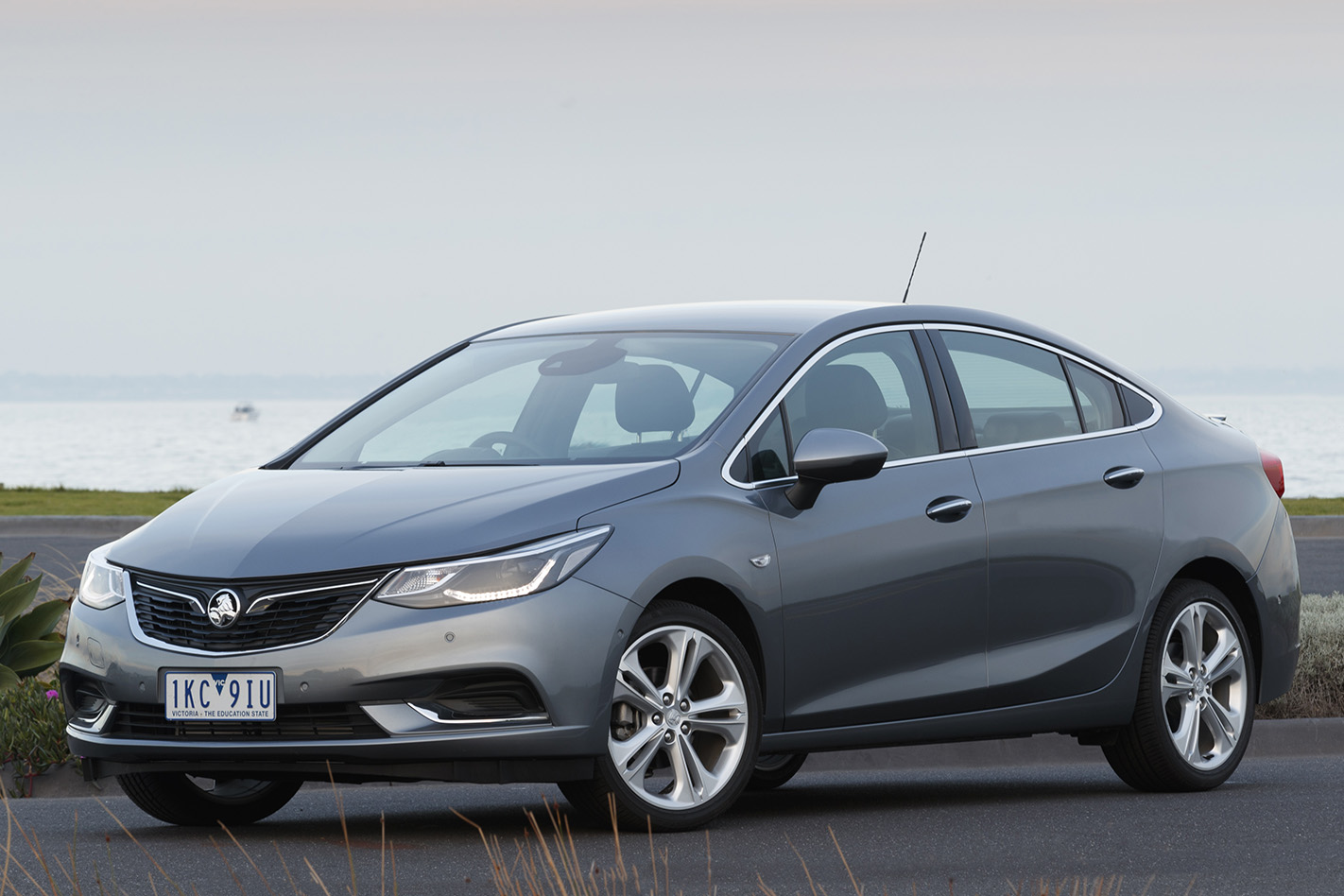
STRENGTHS
- Space is an Astra sedan strong suit. With a 38mm longer wheelbase than the Astra hatch, the sedan boasts a huge 1000mm of rear seat legroom. Backseat headroom is also generous, and if you’re looking for a small car that can comfortably carry four adults, the Astra sedan will do exactly that.
- The boot is especially huge for the segment, allowing a total of 445 litres of cargo to be carried with the rear seats up.
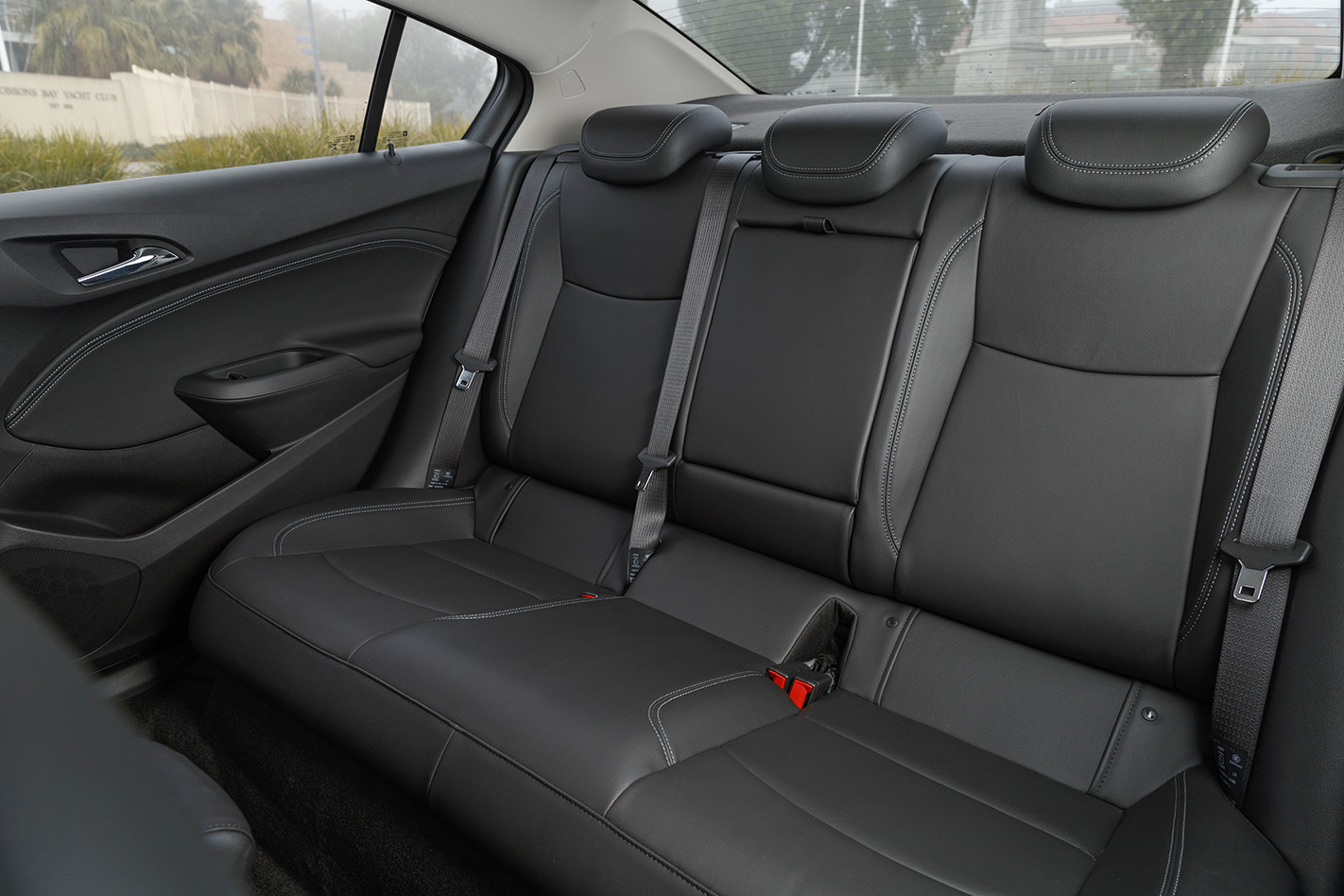
- The Astra sedan’s suspension has been tuned to preference comfort, with Holden’s local chassis engineers deliberately giving the four-door Astra a bit more cushion in its front suspension to deal with lumpy roads. Compared to the hatch, the sedan is definitely plusher – especially on the base LS grade’s 16-inch alloy wheels with chunkier tyres.
- The price vs equipment equation is quite strong. Gear like smartphone mirroring (via Apple CarPlay and Android Auto), auto headlamps and reversing sensors/camera are standard from the base model up, and safety aids like lane keep assist, forward collision alert and blind spot monitoring are offered further up the range. Considering the keen $20,490 starting price, it’s a fair amount of car for the money.
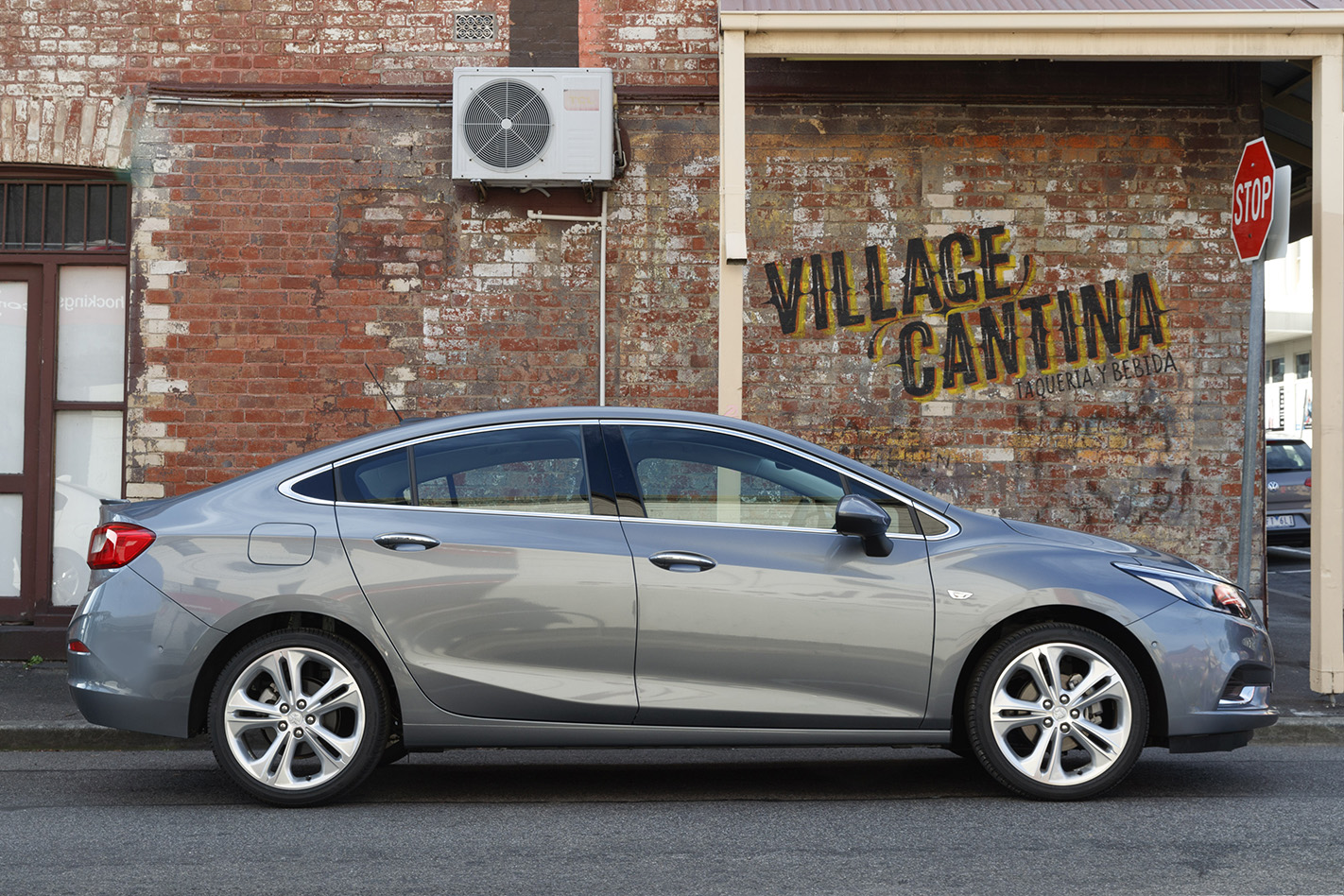
- The 1.4 litre engine that’s the Astra sedan’s sole powerplant is virtually the same as that used by the Astra hatch, with 110kW of power and 240Nm of torque (245Nm if you opt for the manual transmission). It’s a surprisingly tractable engine, and easily pulls a car-load of people up reasonably steep inclines without much fuss – or many revs.
- The six-speed auto that’s standard on the LT and LTZ and optional on the base LS is tuned well, shifting decisively and without any kind of hunting behaviour to spoil the driving experience.
- It’s tremendously quiet. From the smoothness and hushed nature of its 1.4 turbo to the excellent suppression of road noise – especially on smaller-wheeled variants – the Astra sedan feels borderline premium in how refined it is.
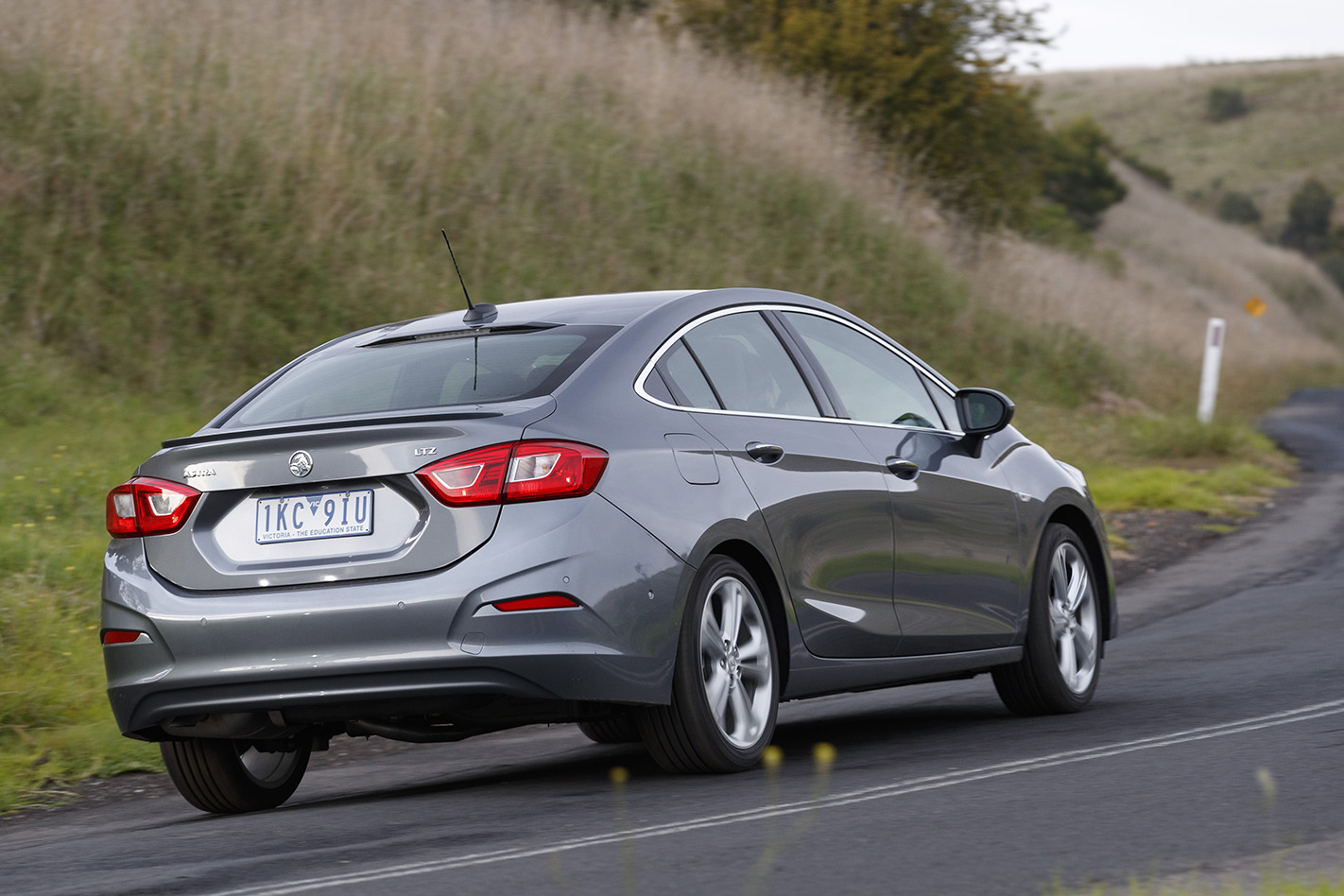
WEAKNESSES
- The Astra sedan’s interior doesn’t match the quality of the Astra hatch, with few soft-touch surfaces to break up the hard plastics that make up the dashboard, door cards and centre console. The base model’s bare urethane steering wheel isn’t quite as nice to hold as the pleather-wrapped one in the LT and LTZ either, and there were fitment issues with some of the centre console plastics in a few of the cars we drove at launch.
- There are no rear air vents, which is a shame given the Astra sedan otherwise excels as a passenger-carrier.
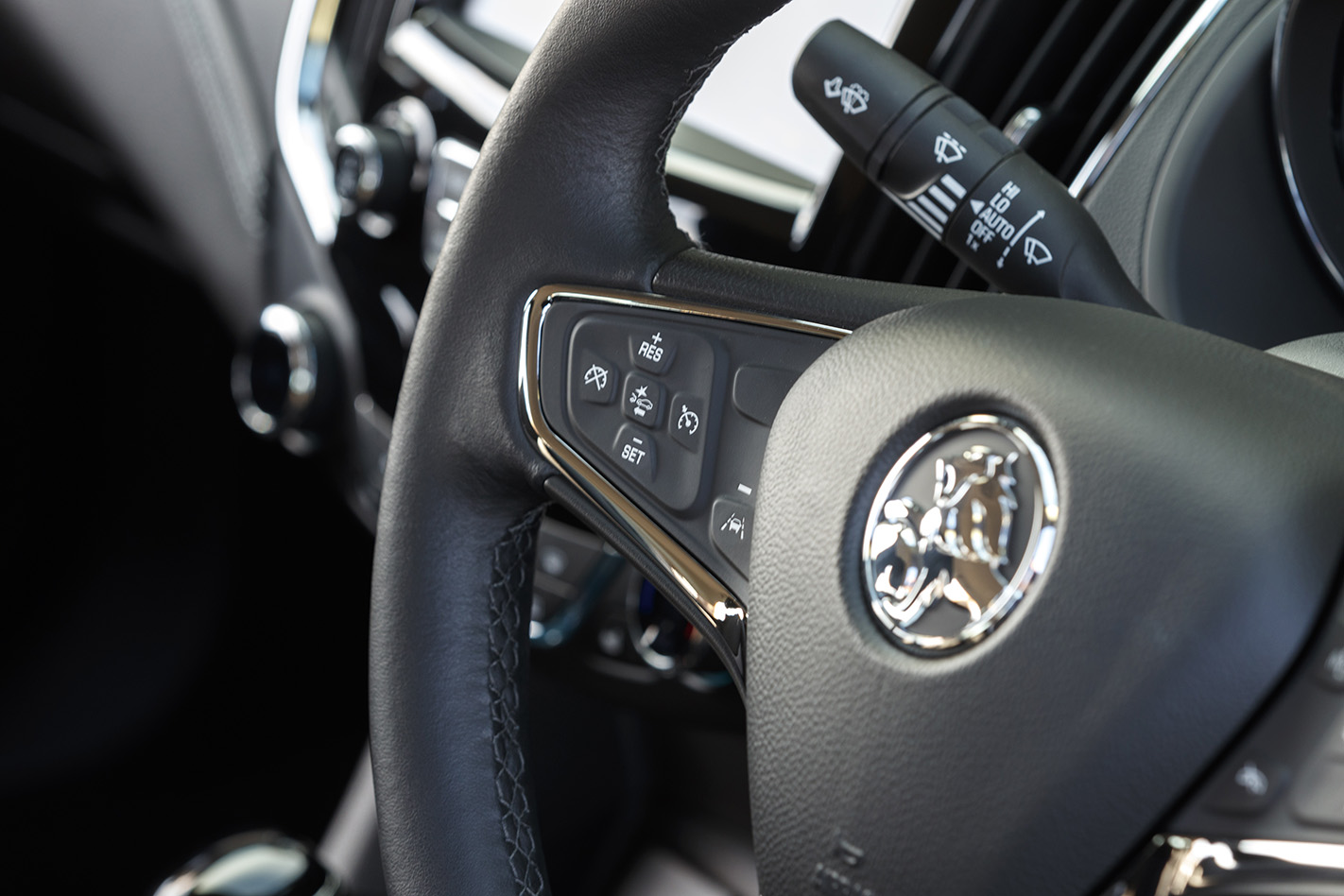
- The Astra sedan’s steering wheel controls put the audio buttons behind the spokes – an unconventional arrangement that can see your fingers inadvertently change radio stations or the volume as you turn the wheel. Irritating.
- It doesn’t feel as dynamic as the hatch. With a rear torsion beam axle that lacks the hatch’s Watts link there’s a little less lateral stability in corners, and the sedan’s comfort-biased suspension is more benign than the five-door Astra.
- A soft suspension tune may be great for soaking up big bumps, but after long stints on undulating country roads there were times where we started to feel a bit queasy from all of the vertical movement.
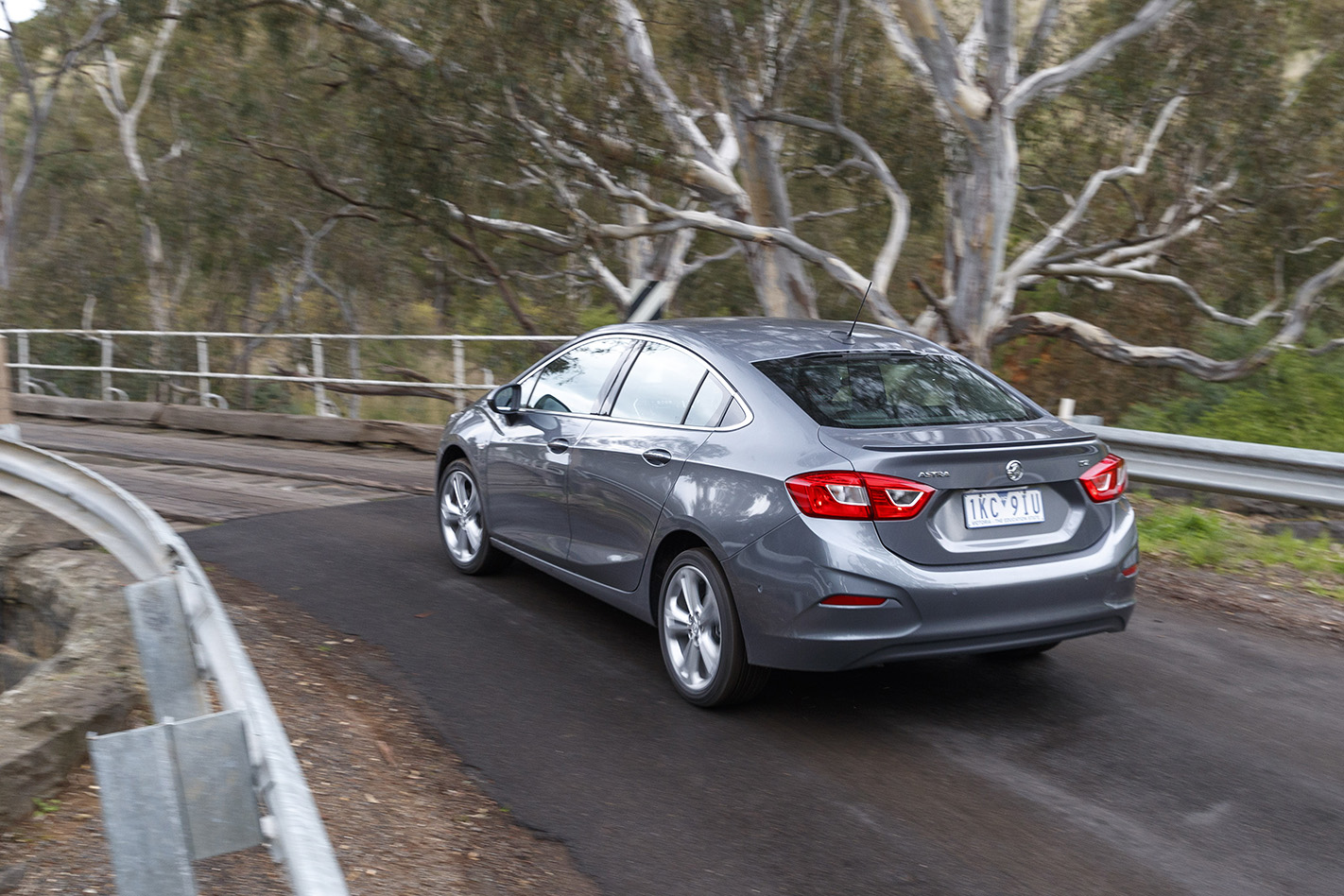
- However, if you opt for the top-grade LTZ you get 18-inch alloy wheels that induce some initial sharpness to the Astra sedan’s ride. It’s a weird mix, with a brittle response to small bumps combined with suppleness over larger undulations.
- No automatic engine start-stop on any variant. It’s a feature that most people probably won’t miss, but when the Astra hatch boasts a fuel-saving feature like start-stop and the sedan doesn’t it raises eyebrows.
- Unlike the Astra hatch, There’s no AEB available on any Astra sedan variant. Blame differing priorities between the European market where the hatch hails from, and the American market that spawned the sedan.
- You can’t get the lovely 1.6-litre turbo that powers the Astra RS and RS-V hatches in the sedan at all, and that’s a shame considering its huge torque output and exceptional driveability.
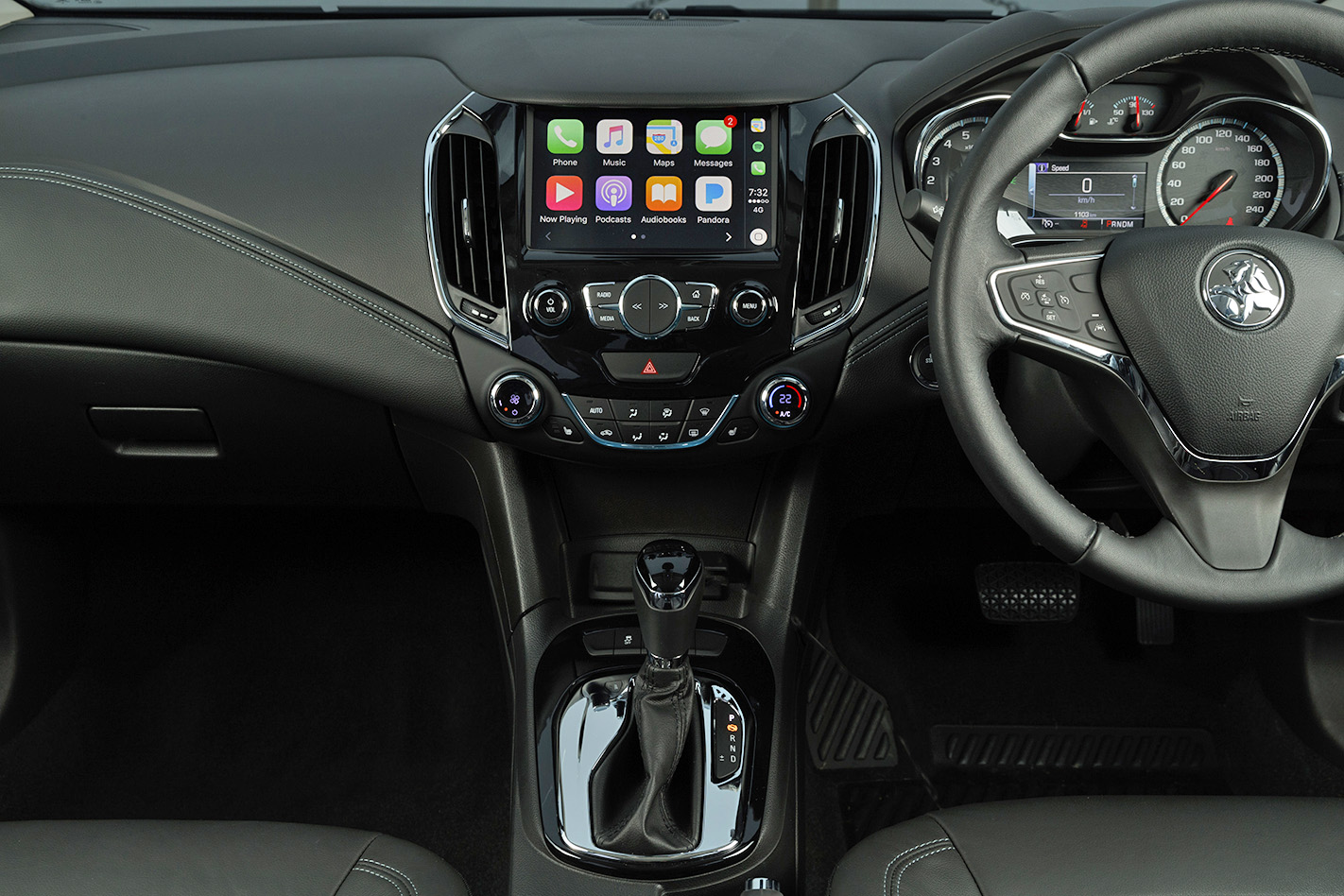
ANY OTHER CARS I SHOULD CONSIDER?
Plenty. The Mazda 3 sedan and Honda Civic sedan are top choice, and the Hyundai Elantra, Toyota Corolla Mitsubishi Lancer all are popular choices in the small sedan market currently.

